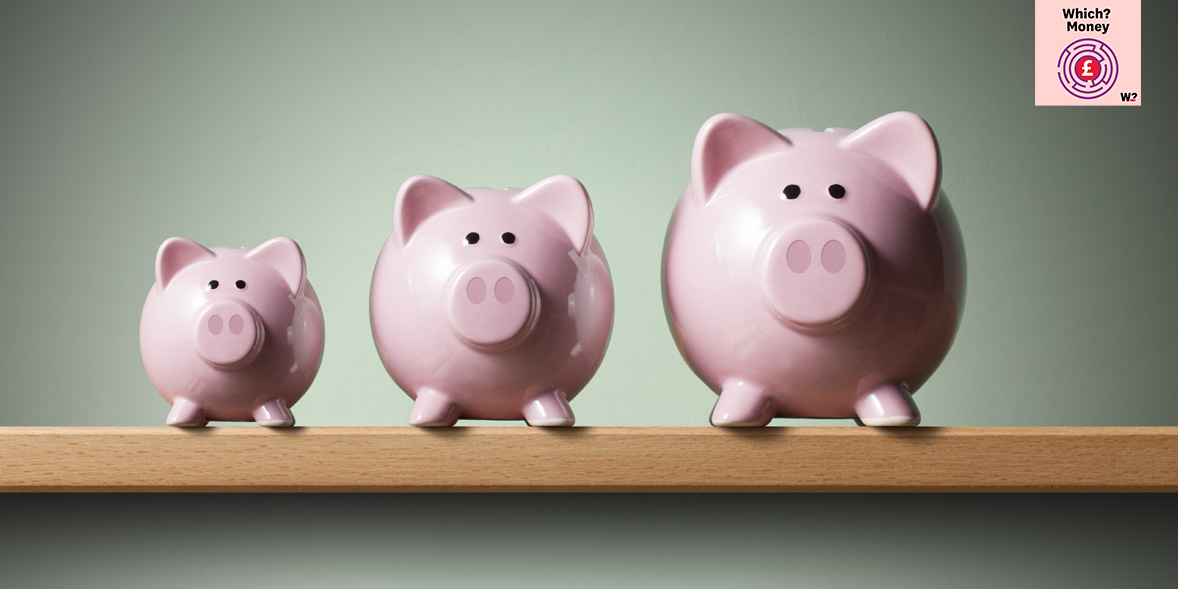
Mortgage interest rates explained

Why are mortgage interest rates important?
Your mortgage interest rate determines how much the balance of your loan will grow each month. The higher the interest rate, the higher your monthly repayments.
Interest rates are always calculated as a percentage of your mortgage's balance.
If you have a repayment mortgage - which most people do - you'll pay a set amount of your balance back each month plus interest on top of that. Those with interest-only mortgages pay interest but none of the -capital.
What mortgage interest rate will I pay?
Mortgage interest rates are either fixed or variable.
Fixed-rate mortgages
With a fixed-rate mortgage, your interest rate - and therefore your monthly repayments - are fixed for a certain period. This can be as short as two years or as long as 10 years.
Variable-rate mortgages
With a variable rate mortgage, your interest rate could go up or down from month to month, meaning the amount you repay is subject to change.
Most tracker mortgages follow the Bank of England base rate (which is currently 5.25%). Your rate might be described as the 'base rate +1%', which means that your interest rate would be 6.25%, but if the base rate changes, so too will your interest rate.
Tracker deals might be as short as two years or run for the entire term of the mortgage.
Discount mortgage deals follow the lender's standard variable rate (SVR), which the lender sets and can change at any time, minus a set percent. So, if the lender's SVR was 6.2% and your discount was 4%, you'd pay 2.2%.
With most mortgage deals, your interest rate will revert to your lender's SVR after the initial period comes to an end. SVRs tend to be relatively high, so it often makes sense to switch - or remortgage - before you're moved onto the SVR.
- Find out more: our guide to the different mortgage types
Which mortgages come with the lowest interest rates?
Generally, the interest rates on fixed-rate mortgages will be higher than those on offer from variable deals.
This is because you're paying a bit more for the security of knowing what your repayments will look like every month.
The same thinking applies with longer fixed-rate deals of five years or more. The lender is taking on a bigger risk by offering these deals as rates in the wider market might rise during that time, so a longer-term fixed rate will often be higher than a shorter-term one.
How do I get the best mortgage interest rate?
The right deal for you will depend on your circumstances and what you want from a mortgage. In most cases you'll need to meet certain conditions to qualify for the most competitive rates on offer.
Follow these steps to increase your chances of getting a great deal:
- Have a good credit record. Lenders are very thorough in checking your credit history when assessing your application - they want to know that you are good at repaying debt, so the better your credit score, the better your chances of being approved. Find out more in our guide to how to improve your credit score.
- Build a bigger deposit. The best rates are reserved for people borrowing at a lower loan to value ratio (LTV) - i.e. borrowing a relatively small percentage of the property price. You can achieve this by saving a bigger deposit, or, if you already own a property, increasing your equity by paying down your mortgage each month.
- Shop around. There are dozens of different mortgage lenders, from the big, high-street names you are familiar with to challenger brands that are exclusively online. Each will have a range of different products on offer, and it pays to take time working out the most suitable deal for you.
- Use an independent, whole-of-market mortgage broker. Not only are mortgage brokers familiar with the different products on offer and able to advise on the lenders most likely to accept you, but they have access to mortgage deals which you can't get by applying directly.
Where can I compare mortgage interest rates?
There are many price comparison sites that allow you to compare mortgage interest rates, based on your own personal criteria.
It's important, however, to not focus solely on the rate that a lender offers, but the total cost of the mortgage across the term of the deal. This way, you'll factor in any fees and cashback associated with the deal as well as the interest being charged.
This is where the APRC can help.
What is APRC?
Regulators now require lenders to work out a deal's annual percentage rate of charge (APRC) in order to make it easier to compare mortgages. An APRC is the total cost of the credit to the consumer, expressed as an annual percentage. All lenders calculate APRC in the same way.
The APRC is interesting but often of limited use, because it assumes that you'll stick with the same mortgage product and provider for the entire term (eg 25 years) and that the rates shown won't change, even if the rate is variable.
How are mortgage interest rates set?
There are a host of different factors that go into how a lender sets the interest rates on its mortgage range.
1. Cost of funds
The first thing to consider here is how the lender is funding its mortgages. The cheaper things are for the lender, the lower its rates can be.
The ways a lender funds its loans can vary enormously: while some will rely on raising deposits from savers, others get their funding through wholesale markets, and some go for a mix.
While the Bank of England base rate does play a part, there's not really a clear link between the base rate and what lenders have to pay to get their funding.
2. Loan-to-value
The larger the deposit you have, the lower the interest rate you'll be able to get. If you're buying with a 40% deposit, then you'll qualify for much better rates than if you're buying with a 10% deposit.
It comes down to a question of risk. If you are borrowing at a high loan-to-value ratio (LTV) then you won't have much equity in the property. As a result, if you default on the loan or the property value drops, the lender is more likely to make a loss.
- Find out more: LTV calculator
3. Competition
Another factor in the pricing of interest rates will be the level of competition in the market, and a lender's own business targets.
If a lender wants to be a dominant player in the mortgage market for that year, it will look at how its competitors are pricing their loans and use that to work out what interest rate it's comfortable lending at.
Equally, if it feels that its lending is already ahead of schedule, then it's likely to start increasing its rates in a bid to attract fewer borrowers.
If you want to know which companies combine top rates and excellent customer satisfaction, read our guide to the best mortgage lenders.
4. Your credit history
Your record as a borrower in the past will have a significant bearing on the mortgages you might qualify for.
For example, if you've missed a few payments in the past, whether on credit cards, personal loans or even your mobile phone bill, black marks will be left on your credit report.
Not all lenders will consider borrowers who have these black marks in their credit history, and those that do will often charge a higher interest rate as a result of the perceived additional risk of lending to you.
- Find out more: bad credit mortgages
Mortgage fees and charges
Mortgage lenders don't just make their money from the interest they charge on the loan; most products come with an application or product fee too.
These are often around £1,000, and can be paid either up-front or added to your mortgage balance, though doing the latter will cost you more as you'll pay interest on it.
Lenders may also offer fee-free deals - but you'll usually pay for this through a higher interest rate.
For example, a mortgage deal might have a 5.39% interest rate and come with a £999 product fee. However, there may also a fee-free version available at 5.49%.
In this particular example, the version with the fee would be cheaper over the long term. But that won't always be the case.
It will all depend on the size of the fee, and the difference between the two interest rates.
You can calculate the difference between fee-free and fee-paying mortgage deals yourself with our mortgage repayment calculator.
Need a mortgage?
Find the best mortgage for you, with expert help provided by L&C Mortgages
Get advice now


















